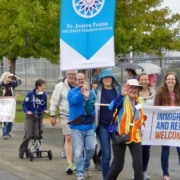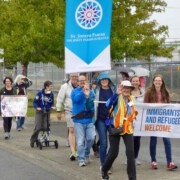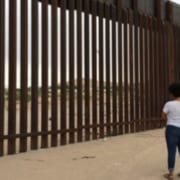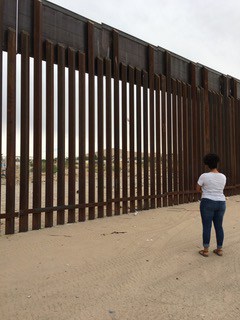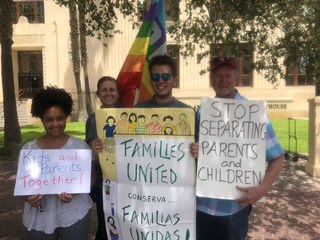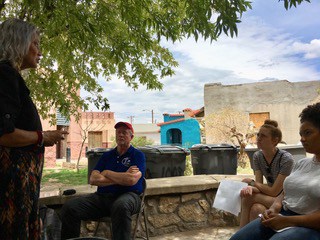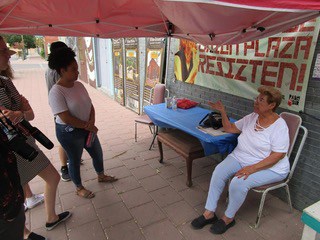BY VINCE HERBERHOLT | September 19, 2018 | EN ESPAÑOL
Two Jesuit parishes in the Pacific Northwest, St. Joseph Seattle and St. Leo Tacoma, joined together to coordinate a pilgrimage and Mass at the GEO-run Northwest Immigrant Detention Center on Saturday, August 25, 2018. More than 500 faith-filled pilgrims prayed and sang for 1.6 miles from St. Leo to the Center where over 1,500 detainees are imprisoned while waiting for immigration hearings or deportation.
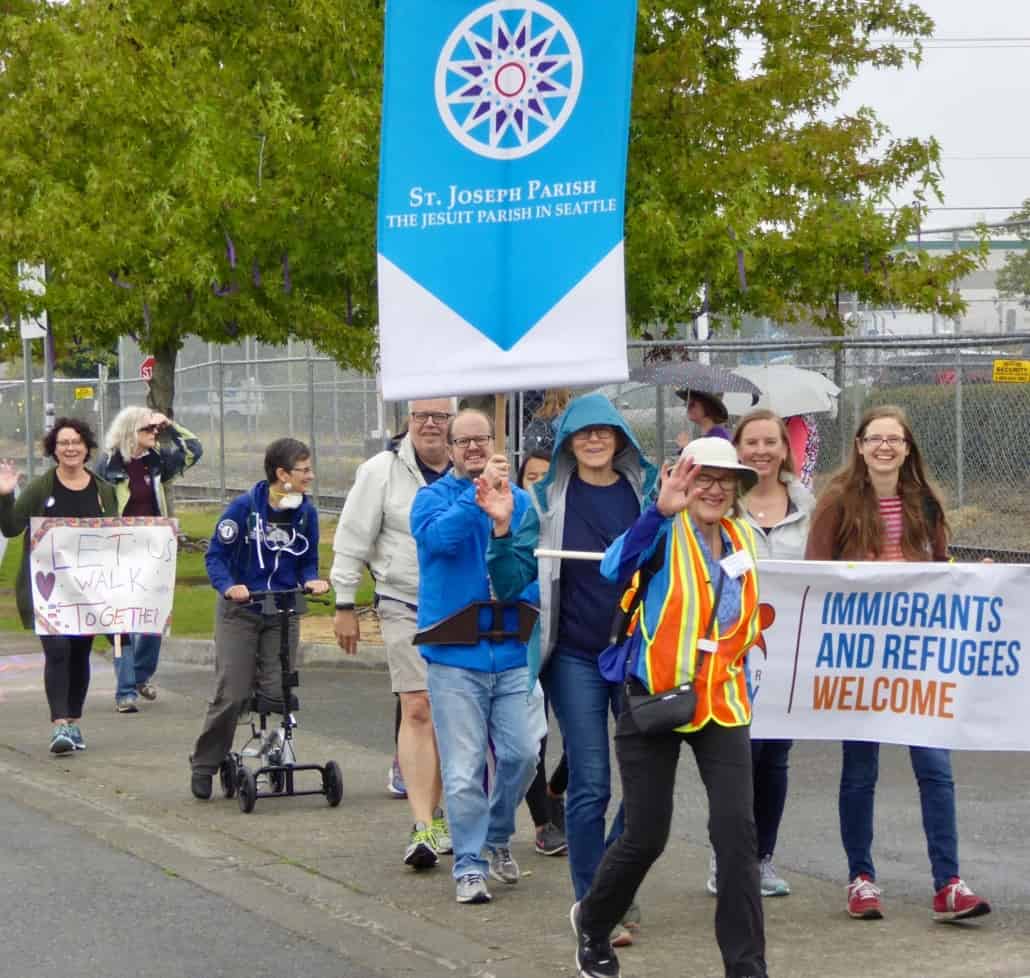
St. Joseph Parish members participate in the pilgrimage.
Frs. John Whitney, S.J., and Matt Holland S.J., pastors of St. Joseph and St. Leo respectively, concelebrated the Mass. Fr. Scott Santarosa, S.J., the provincial of the Jesuit West province delivered the homily, exhorting the pilgrims to “bridge all divides, and foster understanding among diverse peoples and cultures, and make people feel in the most real way at home.”
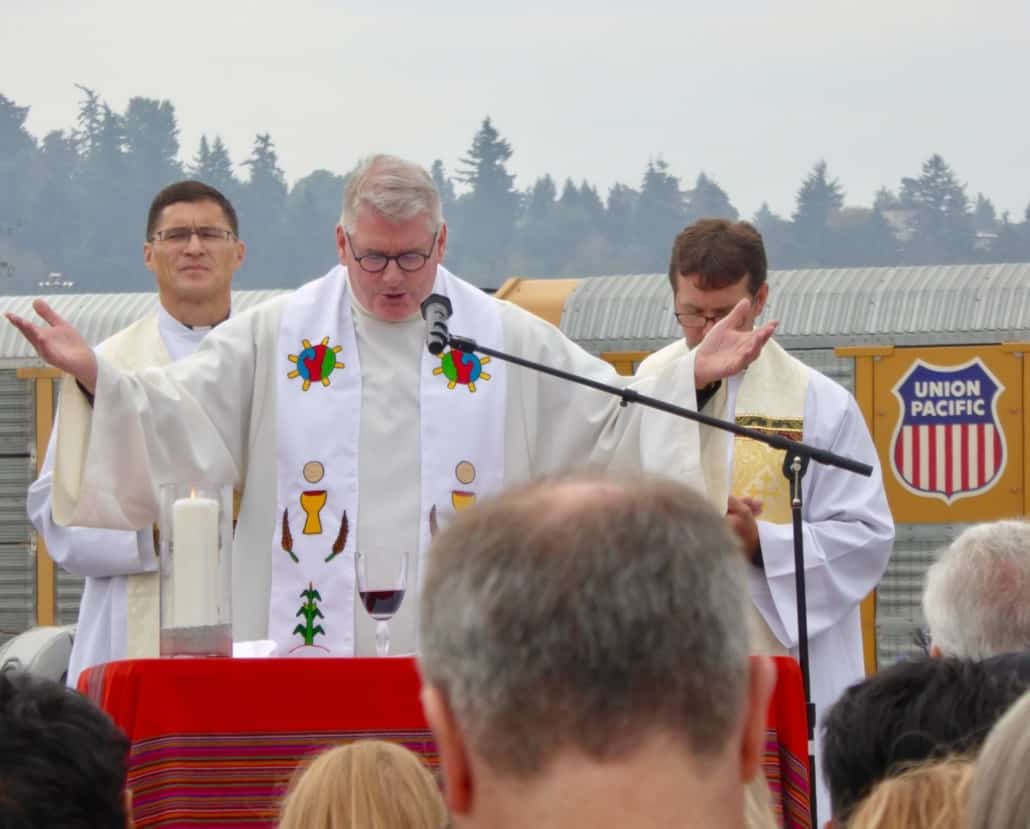
(L-R) Fr. Scott Santarosa, S.J., Fr. John Whitney, S.J., and Fr. Matt Holland, S.J. celebrate Mass outside of the Northwest Immigrant Detention Center on Saturday, August 25, 2018.
During the event, signatures were collected on a petition for the reform of immigration policies in the United States, which will be delivered to local congressional offices. The event renewed energy for continuing work on behalf of immigrants and refugees.
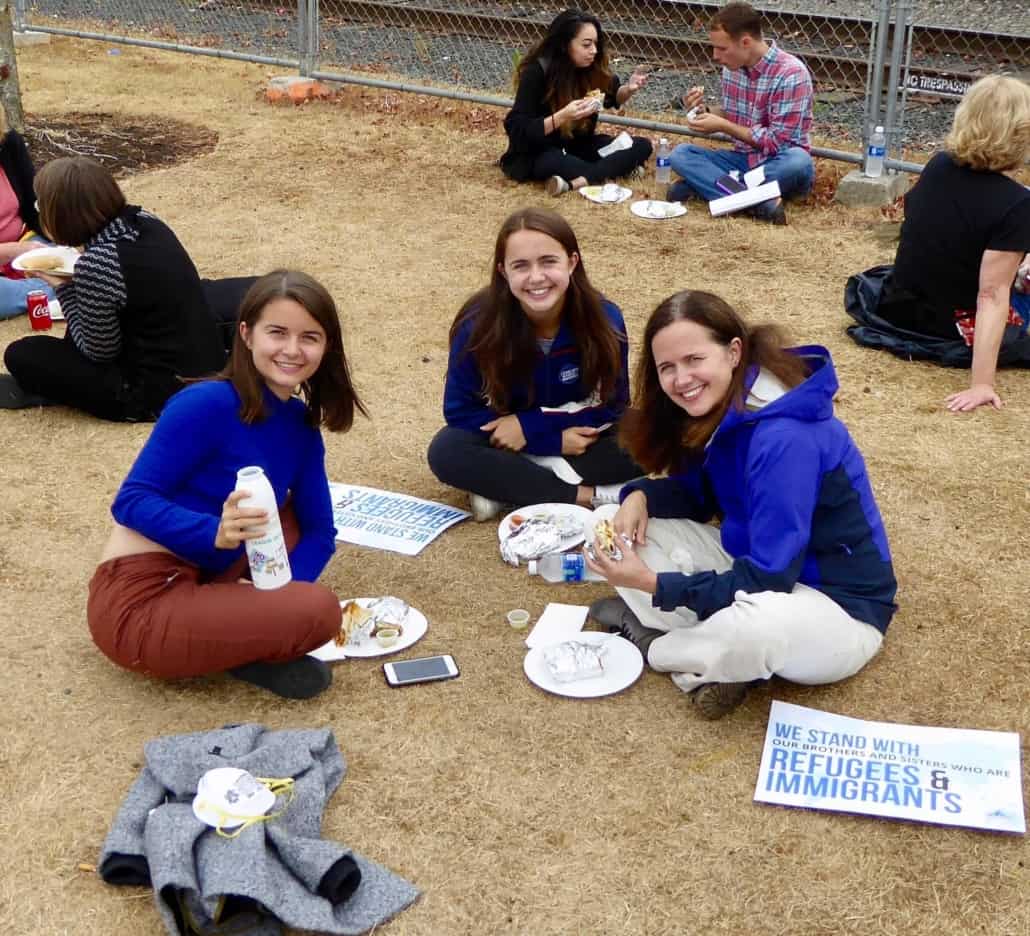
Mass and pilgrimage participants share a meal after the event.
However, even more inspiring were the connections made with the help of the Ignatian Solidarity Network. Over 18 Jesuit parishes and works across the U.S. joined in the group of pilgrims in prayer or with their own activities. In the Jesuits West province that included St. Aloysius in Spokane, St. Ignatius in Portland, St. Ignatius in Sacramento and San Francisco, St. Agnes in San Francisco, Dolores Mission in Los Angeles, St. Francis Xavier in Missoula, the Intercommunity Peace and Justice Center in Seattle, the Ignatian Spirituality Center in Seattle, and the Kino Border Initiative in Nogales, Arizona and Sonora, Mexico.
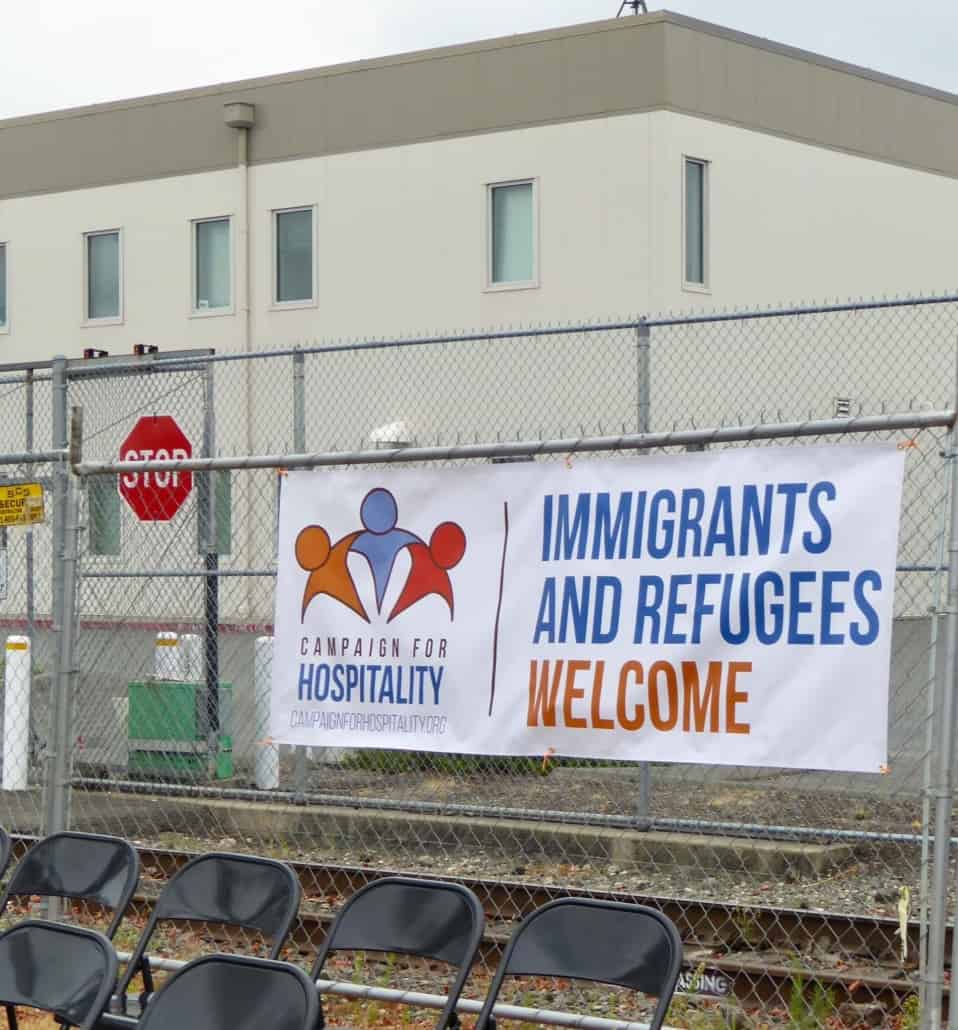
A Campaign for Hospitality banner outside the Northwest Immigrant Detention Center. St. Joseph Parish is a Campaign for Hospitality member institution.
Parishes in other parts of the country include St. Francis Xavier in St. Louis, Bellarmine Chapel at Xavier University in Cincinnati, Church of the Gesu in University Heights, OH, St. Francis Xavier and St. Ignatius in New York City, St. Ignatius in Chestnut Hill, MA, Holy Trinity in Washington D.C., St. Ignatius in Baltimore, and St. Thomas More in Atlanta.
Five of these parishes will be leading their own pilgrimage and Mass or prayer service at detention centers in their area: St. Ignatius in Chestnut Hill, MA, Holy Trinity in Washington D.C. and St. Ignatius in Baltimore, and St. Francis Xavier and St. Ignatius in New York City.
All the Jesuit parishes and works that have joined in this endeavor have expressed interest in continuing collaborations related to immigration reform. Knowing that there is more important work to be done, an ongoing discussion will continue through the Jesuit Parish Collaboration Framework. The Ignatian Solidarity Network designed the initiative to deepen Jesuit parish connection to the Ignatian network by engaging in discernment, action, and advocacy as a parish network.
Vince served the U.S. Department of Health and Human Services for 32 years, retiring as an Associate Regional Administrator in 2007. After retiring, Vince completed a master’s degree in pastoral studies at Seattle University. He served on the board of JustFaith Ministries for 8 years and currently serves on the board of the Ignatian Spirituality Center, where he helps to coordinate the Men’s Spirituality program. Vince is a member of St. Joseph Parish, the Jesuit Parish in Seattle. He has been married to Cathy Murray for 41 years. They have 2 adult sons, Bernard and Conrad.

